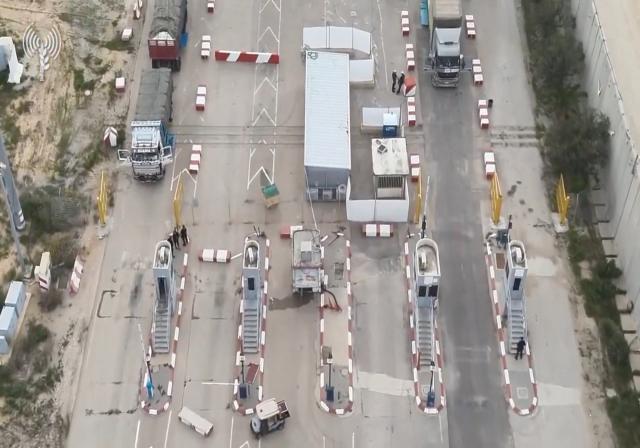In the wake of recent escalations in Rafah that resulted in casualties among Israeli Defense Forces (IDF) personnel, with four soldiers killed and ten others injured due to a barrage of rocket fire, the geopolitical landscape has become increasingly tense. The situation was exacerbated by significant international pressure, particularly from the United States, which threatened to halt arms shipments to Israel. This led to a pivotal decision by Prime Minister Benjamin Netanyahu's war cabinet to reopen the Kerem Shalom crossing just three days after the attacks.
The reopening of the Kerem Shalom crossing marks a critical juncture in the ongoing conflict, as stated by the Coordinator of Government Activities in the Territories (COGAT) alongside the IDF. They emphasized that the decision was a direct response to the urgent need for humanitarian aid in the Gaza Strip, highlighting that the crossing had been closed due to the rocket attacks from the Hamas terrorist organization. The statement detailed that trucks carrying essential supplies such as food, water, shelter equipment, medicine, and medical equipment from Egypt were already en route to the crossing, facilitated by donations from the international community.
Today, @cogatonline reopened the Kerem Shalom Crossing for the entry of humanitarian aid into Gaza after it was closed due to Hamas’ attacks toward the crossing.
— Israel Defense Forces (@IDF) May 8, 2024
Trucks from Egypt carrying humanitarian aid are already arriving at the crossing.
The Erez Crossing is also…
The decision to reopen the crossing came directly after a conversation between Netanyahu and President Joe Biden, underlining the influence of international diplomacy on military and humanitarian decisions. Despite this reopening, COGAT assured that stringent security measures are in place, with all humanitarian aid undergoing thorough checks by the Land Crossings Authority security guards at the Defense Ministry.
Concurrently, the Rafah Border Crossing remains sealed as IDF forces continue their operations in the area. This strategic position, just 3 kilometers from the Israeli border along the Philadelphi Corridor that separates Egypt from Gaza, has also been pivotal for aid delivery following Israeli inspections.
“Maavar Rafiach Beyadeinu!!”
— Hillel Fuld (@HilzFuld) May 7, 2024
The Rafah crossing is in our hands!
The Rafah crossing is Hamas’s oxygen line and the IDF took it over last night!
This, I believe, will go down as one of the most historic moments of this war!
Go, IDF! Don’t stop. Get every single last… pic.twitter.com/uQEmLLDChE
Military operations have intensified, with the IDF seizing control of the Rafah Crossing in a "pinpoint operation" against Hamas, signaling a refusal to accept a truce proposal from Hamas that did not meet Israeli conditions. This led to the approval of a long-planned offensive in southern Gaza.
The ongoing conflict saw further military engagements, including a drone strike by the IDF targeting a rocket launcher in Rafah, which had been used in attacks on Israeli border communities. This action was part of a broader response to continuous rocket fire aimed at Israel, including a separate incident where six rockets were launched toward the still-closed Kerem Shalom Crossing. Thankfully, these attacks resulted in no injuries, as the Iron Dome air defense system successfully intercepted most of the rockets.
Once again, Hamas fired rockets at Kerem Shalom crossing (the access point for humanitarian aid).
— The Mossad: Satirical, Yet Awesome (@TheMossadIL) May 7, 2024
IDF destroyed the rocket launcher, so that we can bring in humanitarian aid.
It's time to understand that Hamas doesn't have Palestinians' best interests in mind. pic.twitter.com/rGadtBNKWK
Despite the heightened military activity, Israel has kept the Erez Crossing with northern Gaza open, allowing the transfer of humanitarian aid, with COGAT reporting that approximately 60 trucks passed through on a recent day, demonstrating Israel's commitment to maintaining humanitarian aid flows despite the security challenges.


